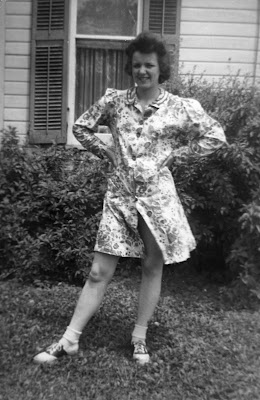We came for the fish. We left with perspective. This is the story of five sojourners who bought the water snake oil.
 |
| Spoiler: These faces are doing one whole hell of a lot of foreshadowing right now. |
In our commute from Batavia to Chicago that morning, the sky, in her generosity, lavished upon us a beneficent deluge and soaked us through in her magnanimity. The four winds, not to be outdone, meted out a handsome contribution to the cause, and so it was that by the time we walked from the train station to the double doors of the aquarium, we received the full benefit of the weather's kind donations. Sopping and shivering in the ticket line, we reached into the bottoms of our leaky pockets for the admission fee we had calculated the day before, but wait!, one among us must have said. For just a few hard-earned dollars more, we could enjoy a 4-D Experience! Not one, not two, not even three, but FOUR dimensions (madness!) were available to us for a fraction of an hour's wages. Moreover, the footage in which we would immerse ourselves like never before (and perhaps be linked to telepathically?) was from Planet Earth, the justly popular BBC show we knew and loved. We relinquished the inflated fare and forfeited our souls to Charon, who ferried us gleefully across the Styx and into the theater.
We arrived in Hades, though we did not yet know how far we had strayed from Heaven's gates. We affixed our comically oversized 3-D glasses to our faces—the first humiliation the theater thrust upon us—and relaxed in our seats as the lights dimmed. At last, we would have peace.
The problems began during the on-screen introduction to the 4-D Experience. In a series of shots showcasing the wonders of 3-D, an old man on camera spat a mouthful of water straight at the lens. The scene was (I'm going to spoil for you right now) the most exciting shot in the entire production. The scene was also our introduction to the fourth dimension so liberally lauded in the aquarium's marketing paraphernalia. As the water gushed from the old man's mouth on screen, we in the audience were treated to a simulated effect in the audience: a languid spray of water that mastered its indolence just enough to humidify our already saturated faces.
Perplexed but undeterred, we persevered to the feature presentation. After all, our first foray into the fourth dimension came only during the teaser. Surely the feature, with its high budget and carefully calculated effects, would take us to worlds hitherto unseen. It began by taking us to Earth, a world hitherto seen. The footage showed Earth from space, which, you may remember from science class, is a vacuum. How best could one simulate a vacuum? Why, with wind, of course. Six enormous fans, three per side of the screen, breathed into life and bellowed upon us their frigid remonstrances. Our already dampened skin received blow after shuddering blow from the wheezing propellers as the spaceship on screen soared endlessly through the emptiness.
Before the hypothermia progressively reduced our consciousness, we were able to discern in that initial, eternal shot that the footage was familiar. It was the same exact footage, in fact, that we had seen on television months before, but this time a 3-D effect had been tacked on clumsily during post-production.
Nevertheless, we continued. We had paid our five dollars and, by George, we were determined to get a five-dollar thrashing. The next few scenes gave us alternating wind and mist, as coordinating scenes flashed before us. Naturally, if saltwater surged from a distant whale's blowhole on film, we experienced a freshwater spray from the seats in front of us. If gazelles leaped through the Serengeti, an icy blast was the obvious corollary. We huddled in our seats, our arms wrapped close around us and our feet sacrificed to the spray to give our soggy faces a reprieve.
If we could only burrow into our seats, we would find shelter from the screen, we thought. Foolishly. Deeper and deeper into our seats we crouched until a water snake on screen announced our final humiliation. As Sigourney Weaver commentated, the serpent slithered through the water in great, fluid motions. For its final moment on camera, the snake chose to glide toward the camera just a touch faster. It did not strike. It did not spook. It just picked up the pace. In the theater, we were informed of the creature's accelerated ambulation in front of us by swift, hard stabs in the back. Plastic rods about three inches long and a quarter inch in diameter emerged from their lairs in the backs of our seats and jabbed us directly in the spine. We lunged forward reflexively and received a prompt spray of water straight in the eyes.
We were bruised. We were blind. We were shivering. We were wet.
The credits rolled before us, and as the house lights lifted, we solicited each other for the kind of sympathy that only comes through shared experience. We stumbled out of the theater colder, damper, and, I hope, enlightened. Only time, the true fourth dimension, will tell.












